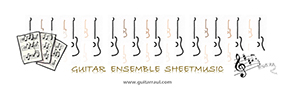Nuno José Dos Santos Anaia Cristo
Since the mid-nineteenth century the Portuguese guitar has been connected to the fado genre. Over the years, both the instrument and the song genre have experienced significant transformations, at times related to aesthetic changes, at other times conditioned by social, political and economic alterations. This thesis focuses on the historic organological development of the Portuguese guitar, as an instrument associated with fado, and explores how the Lisbon guitar model has been progressively replaced by the Coimbra guitar model (both in practice and iconic symbolism). I argue that this tendency is related to the current new era of Portuguese guitar practice with its origins in the post-revolutionary period lived in Portugal after the political overthrow in 1974. My study is based on the review and analysis of the most recent works on the subject, fieldwork among players and makers, iconographic and archival research, and my own experience as a player and maker of both models of the Portuguese guitar
The portuguese guitar: History and transformation of an instrument associates with fado





